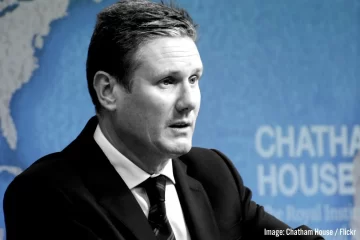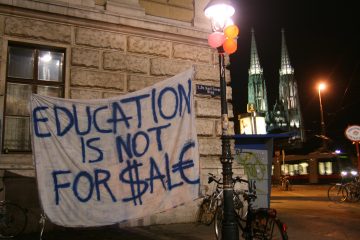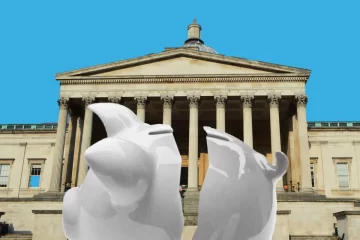It’s easy to look at the international protests sparked by the extrajudicial police killing of George Floyd and think that the issue of racist police brutality is something particularly egregious in the USA, while believing that in the UK there may be instances of racism in the police but they are isolated or so rare as to be unimportant.
When Sir Keir Starmer said in an interview that “… the Black Lives Matter movement, or moment if you like… is about reflecting on what happened dreadfully in America just a few weeks ago and showing or acknowledging that as a moment across the world.” and that “It’s a shame it’s getting tangled up with these organisational issues, with the organisation Black Lives Matter…” he was echoing these sentiments. Passively “recognise” and “stand with” the victims of a single instance of police racism by all means, but organising and making meagre demands for a redistribution of funds away from policing and towards deprived communities are “shameful” and “nonsense”.
However evidence of systematic racism in the UK police and criminal justice system is overwhelming. It’s well documented not just in the Stephen Lawrence Inquiry, the Lammy Review or by the Runnymede Trust. The list of the victims of UK police brutality is too long to do justice to. Police racism is also more frequently being caught on camera by members of the public. During the pandemic, a time of heightened tensions and increased police presence, footage of police using disproportionate force against black people, using racial profiling and escalating rather than de-escalating situations have come to light.
Over the last couple of weeks we have seen:
Desmond Ziggy Mombeyarar is being questioned at a petrol station by police in relation to driving offences and breach of lockdown regulations. He is then tasered for no apparent reason in front of his distraught five year old son. The video for which can be seen here.
A police officer says “No offence to you, but you’re a black male” and that there are drug dealers in the area as an explanation of why the driver filming the incident has been stopped, a clear cut example of racial profiling.
A black couple in Ipswich are accused of looking “suspicious” for an unstated reason and are asked to show identification on their own driveway because they were “driving a motor vehicle on a road”. They are accused of “jumping on the bandwagon” for questioning this.
Police smash the windows of Ryan Colaço’s car and drag him out of the vehicle, wrongfully accusing him of concealing drugs. Ryan was on his way home from a TV interview about police racism and had been stopped and searched a week before.
Compare also the footage of police coming out in force to control BLM protests, to footage of crowds, largely white, at parks, beaches or street parties which appear to break social distancing rules and where the police are largely absent or indifferent.
The people who document examples of police racism as they happen are doing an important public service by bringing something that is dismissed or ignored by many into greater public awareness. But it’s up to the socialist movement to properly analyse why these are not isolated events but a strategy for maintaining the domination of the masses by the ruling class, and to lead the way to smashing this domination.
As socialists we see police racism not as a result of a “few bad apples”, a problem that can be solved by reform. The police do not “protect and serve” the communities in which they operate or “police by consent”. They serve the ruling class and act to suppress the working class. The ruling class maintains its power by dividing the working class against itself, by stoking racism and other forms of oppression. The police opportunistically crack down on those groups within the working class who will have the least power to fight back, including minorities whose appeals to the justice system when they are unlawfully killed or mistreated fall on deaf ears.
This won’t change simply because people acknowledge the injustice or ask for reforms administered by the ruling class which benefits from the current injustices. These stories will only become a thing of the past when the working class in all its diversity organises to stop all the injustices and forms of oppression which are bound up with capitalism, imperialism and state tyranny.
Charles Alexander




0 Comments